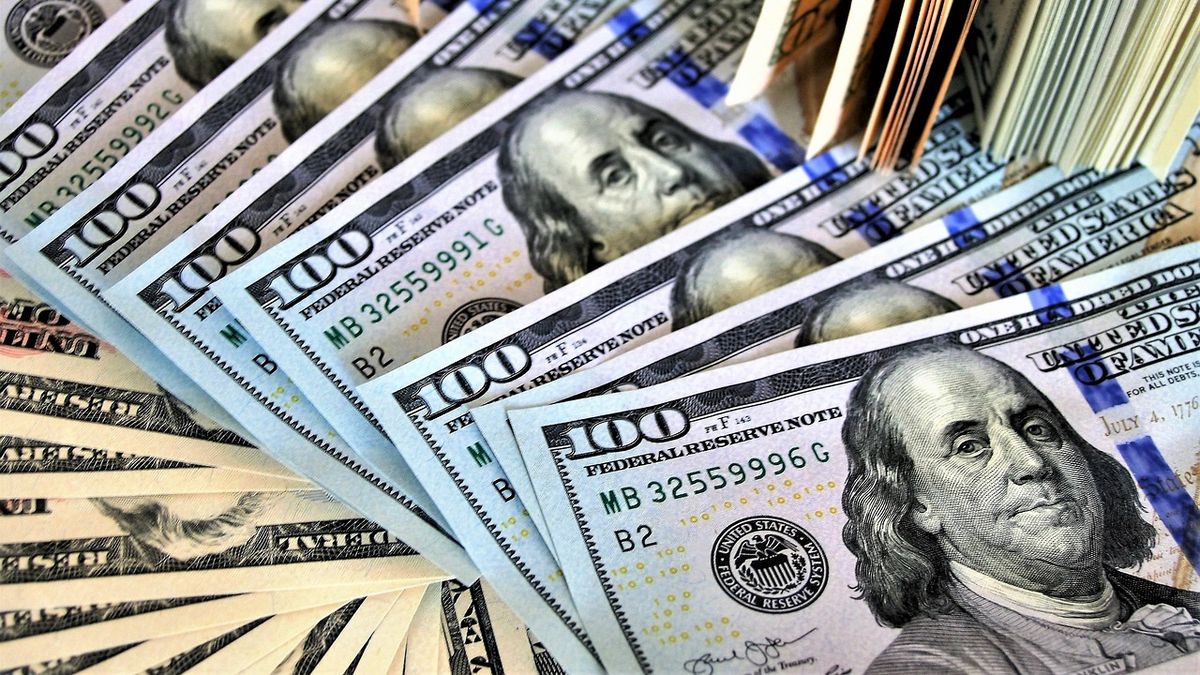He global dollar is headed for its biggest monthly rise in two and a half years, and remains near three-month highs ahead of a series of employment and inflation data in USA that could determine the path for Federal Reserve (Fed) regarding its monetary policy; and at the same time that the ruling coalition in Japan lost the parliamentary majority, sinking the yen. On the contrary, the currency in Uruguay fell sharply by 1.38% after the electoral results and the failure of the plebiscite of the PIT-CNT that had investors in suspense.
He dollar index —which measures the performance of the greenback in relation to a basket of six other internationally relevant currencies— has risen 3.6% so far in October, marking its best monthly performance since April 2022. This year it has risen against all major currencies except the pound. In front of yen, In particular, it hit three-month highs against the yen on Tuesday as Japan’s ruling coalition’s loss of a parliamentary majority in weekend elections clouded the political and monetary landscape.
On the other hand, recent data has highlighted the resilience of the US economy, which, together with growing market bets on a victory for the Republican candidate donald trump in next week’s US presidential elections, have shored up the dollar and have raised Treasury bond yields.
“I still think that the currency market is only thinking about one operation at the moment, which is a strong dollar,” said the research director of XTB, Kathleen Brooks, in dialogue with Reuters.
Likewise, this week new economic data will be published that will be key to determining what will happen to interest rates in November. The list includes the basic personal consumption expenditure price index of September in the United States – the Fed’s preferred measure of inflation – due to be published on Thursday, as well as an avalanche of jobs reports.
With the dollar unlikely to move much from its recent highs, other currencies came under pressure, most notably the yen, which has fallen to its lowest level since July after Sunday’s Japanese election left it in flux. the composition of the future government.
“Overall, the risks appear to be skewed towards more flexible fiscal policy than otherwise under the new government,” he told Reuters. Carol Kong, foreign exchange strategist Commonwealth Bank of Australia. “Greater financial market volatility could also encourage the Bank of Japan to keep its policy interest rate unchanged for longer than we currently expect,” he added.
The yen has lost almost 10% in value since September’s 14-month high against the dollar. Meanwhile, the dollar rose 0.1% on the day to 153.415.
In Uruguay, the election results sank the dollar
In Uruguay, meanwhile, the dollar fell 1.38% after the first round of the 2024 elections and closed at 40,984 pesos in the interbank price of the Central Bank of Uruguay (BCU), chaining its second consecutive day of decline to sink to the 40 peso range.
The US currency accumulates a monthly depreciation of 1.58% and an annual variation of 5.03%, since its price is 1.96 pesos above that registered after the closing of the last exchange day of last year .
The rejection of plebiscite against social security reform driven by the PIT-CNT seems to have brought calm to the value of the greenback, after last month it surpassed the line of 42 pesos and detachments of national securities by foreign investors were reported, due to fear of approval of the union initiative.
Source: Ambito
I am a 24-year-old writer and journalist who has been working in the news industry for the past two years. I write primarily about market news, so if you’re looking for insights into what’s going on in the stock market or economic indicators, you’ve come to the right place. I also dabble in writing articles on lifestyle trends and pop culture news.




